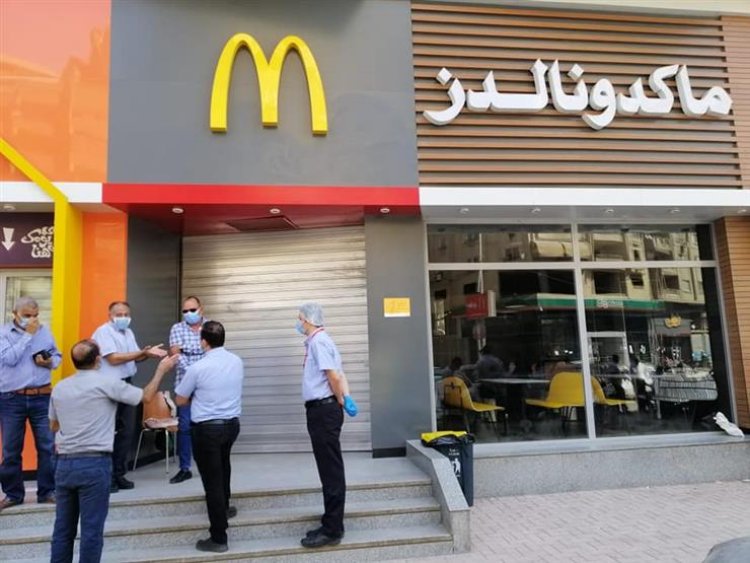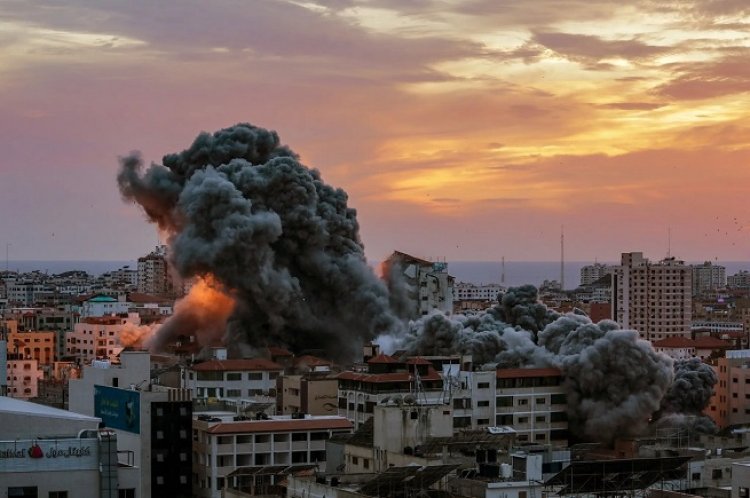Decreased 70 %.. McDonald's Egypt sales fall after boycott calls

Many McDonald's restaurant branches in the Arab region have become empty of customers in light of the spread of calls to boycott Western restaurants, coinciding with the Israeli war on the Gaza Strip, which has claimed the lives of more than 14,500 Palestinians so far.
The impact of the boycott appears especially in Egypt and Jordan, with the campaign spreading in some other Arab countries, including Kuwait and Morocco.
Some of the companies targeted by the campaign are seen to have taken pro-Israel stances, and some are alleged to have financial ties to Israel or investments there, with boycott calls prompting shoppers to turn to local alternatives.
Make their voices heard
In a country like Egypt, which is adjacent to the Gaza Strip and whose population represents a quarter of the Arab world, some believe that boycott is the best or only way to make their voices heard.
McDonald's Egypt's sales were strongly affected by the popular boycott campaigns taking place in the country.
In Jordan, pro-boycott residents sometimes enter McDonald's and Starbucks branches to encourage the few customers to get food and drinks from elsewhere.
Boycott calls have targeted well-known detergent companies, with videos spreading of Israeli soldiers washing their clothes with these detergents.
Boycott campaigns spread
Popular boycott campaigns spread in several Arab countries, led by Egypt, after the outbreak of war in the Gaza Strip since the seventh of last October, and included famous brands such as “McDonald’s,” “Starbucks,” and others.
Activists calling for a boycott focused on McDonald's, after its agent in Israel said that it provides free meals to members of the Israeli army.

Decreased 70 %
According to Reuters, an employee in McDonald's management in Egypt, who requested to remain anonymous, said that Egyptian franchise sales in the months of October and November had decreased by at least 70 percent compared to the same months last year.
The employee explained that the company is barely covering its operating expenses, and Reuters has not yet been able to verify the numbers provided by the employee.
Sameh Sadat, an Egyptian politician and co-founder of TBS Holding, a supplier to Starbucks and McDonald's, said that he noticed a decrease or slowdown of about 50 percent in the orders of the two customers.
At the beginning of this November, McDonald's International published a statement on its official pages on social networking sites, and it was also published simultaneously on the official documented pages of its agents in Saudi Arabia, the Emirates, Kuwait, Qatar, Bahrain, and Oman.
The statement said: "We at McDonald's International express our shock and extreme dissatisfaction over the misleading and false information and rumors that have been raised about our position on the current conflict in the Middle East."

The statement added: “We affirm categorically that McDonald’s International does not finance or support in any way any governments or parties involved in this conflict, and that any action, action or decision taken by one of our agents is an individual action by that person.” The agent was taken independently and without our acceptance or approval.”
The campaigns reflect a wave of anger over the Israeli military operation, which is considered more destructive than previous attacks, causing a humanitarian crisis, killing thousands of civilians, and destroying half of the homes in the Strip.


 Shrouq
Shrouq 












